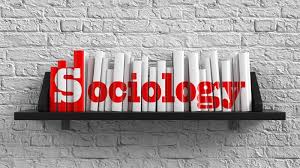What you will learn?
Successful completion of the "Exploring Human Society: A Sociology Exit Exam" signifies students' proficiency in sociological concepts, theories, and research methods.
Students will develop the ability to examine and interpret the complexities of human society, critically analyze social phenomena, and propose informed solutions to social issues.
This exam equips students with invaluable skills, preparing them for further studies in sociology or related fields, and opening doors to careers in research, social services, policy analysis, advocacy, and more.
About this course
The Sociology Exit Exam Practice Exam is designed to help sociology students prepare for their final exit exam. This practice exam provides a simulated testing environment where you can assess your knowledge and understanding of various sociological concepts, theories, and research methods. The exam covers topics such as social stratification, social institutions, sociological perspectives, and research design. By taking this practice exam, you can evaluate your preparedness, identify areas that require further study, and build confidence for the actual exit exam.
Requirements
To take this exam, students must be enrolled in a sociology program at an Ethiopian university or college and have completed the necessary coursework.
FAQ
Comments (0)
Sociology is the study of human society, social groups, and social interaction.
Theoretical perspectives in sociology are frameworks that help sociologists to understand and explain social phenomena.
Sociological research methods are the techniques that sociologists use to collect and analyze data about social phenomena.
Ethics in sociological research is important because it helps to protect the rights and interests of the research participants.
Agents of socialization are the people, groups, and institutions that help us learn the norms, values, and behaviors of our society.
Socialization is the process by which we learn the norms, values, and behaviors of our society.
Social roles and identity formation are closely related concepts.
Socialization is the process by which we learn the norms, values, and behaviors of our society.
Social class is a term used to describe the hierarchical arrangement of people in society based on their wealth, income, occupation, and education.
Poverty is a state of economic deprivation in which people lack the means to meet their basic needs for food, clothing, shelter, healthcare, education, and so on.
Global stratification is the unequal distribution of resources, opportunities, and power among nations and peoples across the globe.
Intersectionality is a term used to describe the ways in which different social categories, such as race, class, gender, and sexuality, intersect to create unique experiences of social stratification.
The social construction of race and ethnicity refers to the idea that these categories are not natural or biological, but are instead socially created and imposed.
Prejudice and discrimination are two closely related concepts that can have a significant impact on people's lives.
Racial and ethnic identity are complex and personal topics.
The concepts of race and ethnicity have been used to justify and perpetuate systems of inequality throughout history.
The social construction of gender is the theory that gender is not a natural or biological phenomenon, but rather a social construct.
Gender socialization is the process through which people learn the norms and expectations associated with their gender.
Intersectionality is a term that refers to the ways in which different social identities, such as race, class, gender, and sexuality, intersect and overlap to create unique experiences of oppression and privilege.
LGBTQ+ identities and social movements are closely intertwined.
Family and marriage are two of the most important social institutions in human society.
Education and schooling are two terms that are often used interchangeably, but they have different meanings.
Religion and society are closely intertwined. Religion can play a significant role in shaping a society's values, norms, and institutions.
Politics is the process of making decisions that affect a community or society.
Societal change and modernization are two interrelated concepts that refer to the process of social transformation.
Social movements and collective behavior are two closely related concepts that refer to the organized efforts of people to bring about social change.
Globalization is the process of increasing interconnectedness between different countries and cultures.
Social change is the process of social evolution and transformation. It is the way in which societies change over time.



.png)





